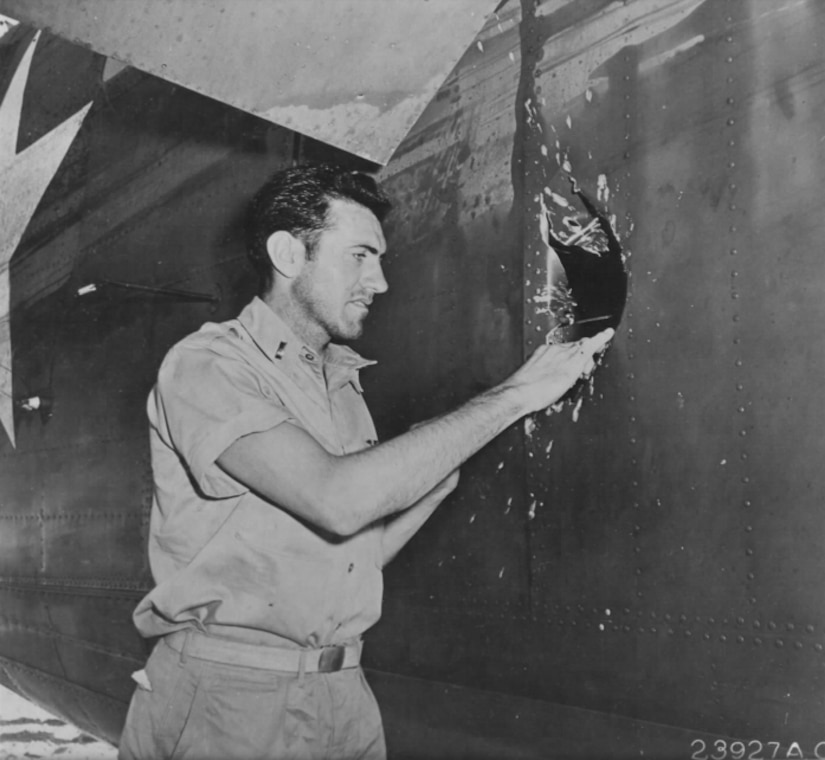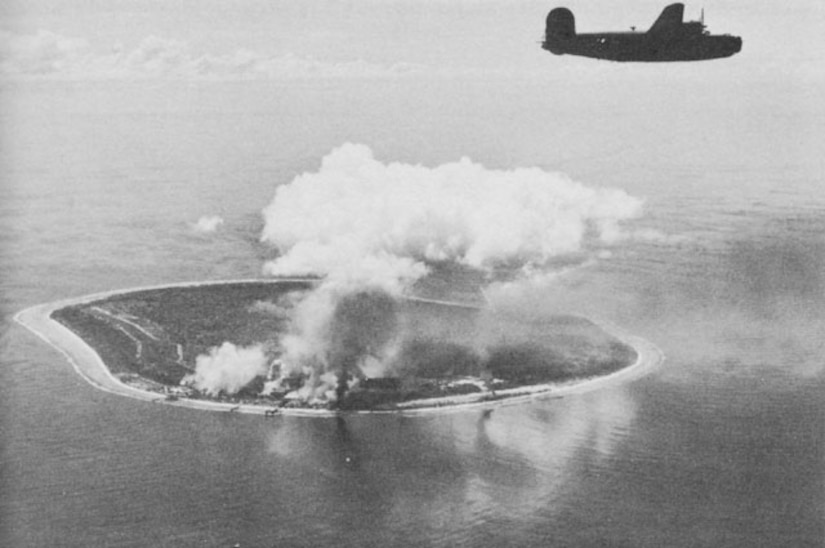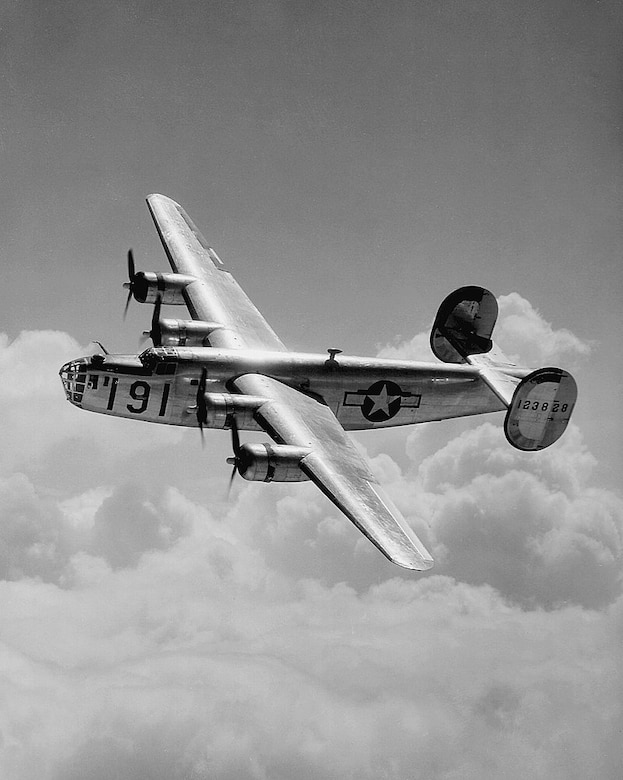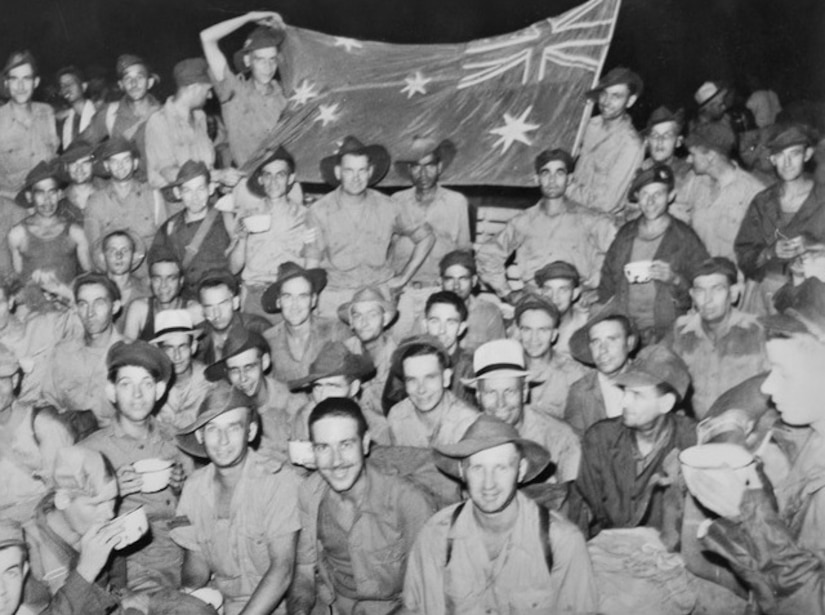In 1936, 19-year-old Louis Zamperini qualified for the Summer Olympics in Berlin. Even today, he remains the youngest American to qualify in the 5,000 meter track and field event.
He didn't earn a medal at the Olympics, but several years later he would take part in actions that resulted in medals earned for acts of valor.

In 1938, Zamperini attended the University of Southern California, where he set a national collegiate record of 4 minutes, 8.3 seconds in the mile, despite being intentionally spiked in the shins from competitors during that race.
The runner would soon shift gears in his career. He didn't wait for America's entry into World War II. Instead, Zamperini enlisted in the Army Air Corps in September 1941 and soon was commissioned as a second lieutenant.
In late 1942, he was stationed on the Pacific atoll of Funafiti. It and other islands at the time were a British colony, known as the Gilbert and Ellice Islands.
The Seabees had constructed a runway there, which was used by Consolidated B-24 Liberator heavy bombers. Zamperini was a bombardier. The bombardier sat in the cockpit, where .30-caliber Browning M1919 machine guns were mounted on both sides for forward protection of the aircraft. The navigator could man one of the guns if necessary.
Missions included bombing runs on Kiribati, one of the Gilbert Islands occupied by Japan, and another, Nauru, which was administered by Australia at the time.

On one return flight from a successful bombing mission over Nauru, Zamperini's aircraft was attacked by three Japanese Zero fighter aircraft. He and the other gunners successfully fought them off, but one of the crew members was killed, four others were injured, and the aircraft sustained severe damage, though it managed to land back at Funafiti.
Next, Zamperini was transferred to Hawaii, where he was a crew member on another B-24. Their mission this time was searching for lost crew members and aircraft.
On May 27, 1943, his aircraft experienced mechanical problems during a mission and ditched into the ocean 850 miles south of Oahu, Hawaii. Only three men survived the crash, including Zamperini.
They inflated life rafts and floated about for weeks. They captured two albatrosses that landed on their rafts. They ate one, and they used the other as bait to catch fish. Fortunately for them, it rained enough to supply drinking water.
There were some close calls. A shark brushed up alongside their rafts, but it left when they hit it with a raft paddle. They nearly capsized during a storm, and they were strafed a number of times by a Japanese bomber.
After 33 days, one of the three men died.

On Day 47, Zamperini and Russell Allen Phillips, who was the pilot of the doomed B-24, landed their raft at Kwajalein Atoll in the Marshall Islands, where they were immediately taken prisoner by Japanese sailors. He and Phillips were later transferred to a number of prisoner of war camps on mainland Japan and were separated. They wouldn't meet again until after the war.
Zamperini eventually was transferred to the infamous Naoetsu POW camp in northern Japan, where he remained until the end of the war.
The camp was infamous because of prison guard Mutsuhiro ''The Bird'' Watanabe, who relished torturing the men. After the war, Army Gen. Douglas MacArthur listed him 23rd among the top 40 most wanted war criminals in Japan. However, he was spared execution.
Marine Corps Maj. Greg ''Pappy'' Boyington was held at the same POW camp. In Boyington's book, ''Baa Baa Black Sheep,'' he wrote that Zamperini described Italian recipes to the men to keep their minds off their miserable situation. Zamperini grew up in an Italian family, and he didn't even learn to speak English until grade school.

While Zamperini was held captive, he first was declared missing at sea and later as killed in action.
After the war, Zamperini said, he drank heavily and was extremely bitter about Watanabe and others who mistreated the prisoners. The life-changing moment for him, he said, came when he was attending a Rev. Billy Graham crusade in Los Angeles in 1949, which resulted in him becoming a born-again Christian.
He returned to Japan the following year, where he met many of his former guards to tell them he'd forgiven them. However, Watanabe refused to meet with him, so he wrote a letter of forgiveness to him.
In 1998, Zamperinia participated in the torch relay for the 1998 Olympic Winter Games in Kyoto, Japan. In 2010, Laura Hillenbrand wrote a book about him: ''Unbroken: A World War II Story of Survival, Resilience, and Redemption.'' Four years later, actor Jack O’Connell portrayed Zamperini in the film ''Unbroken.''
Zamperini died in 2014 in Los Angeles at 97.









No comments:
Post a Comment